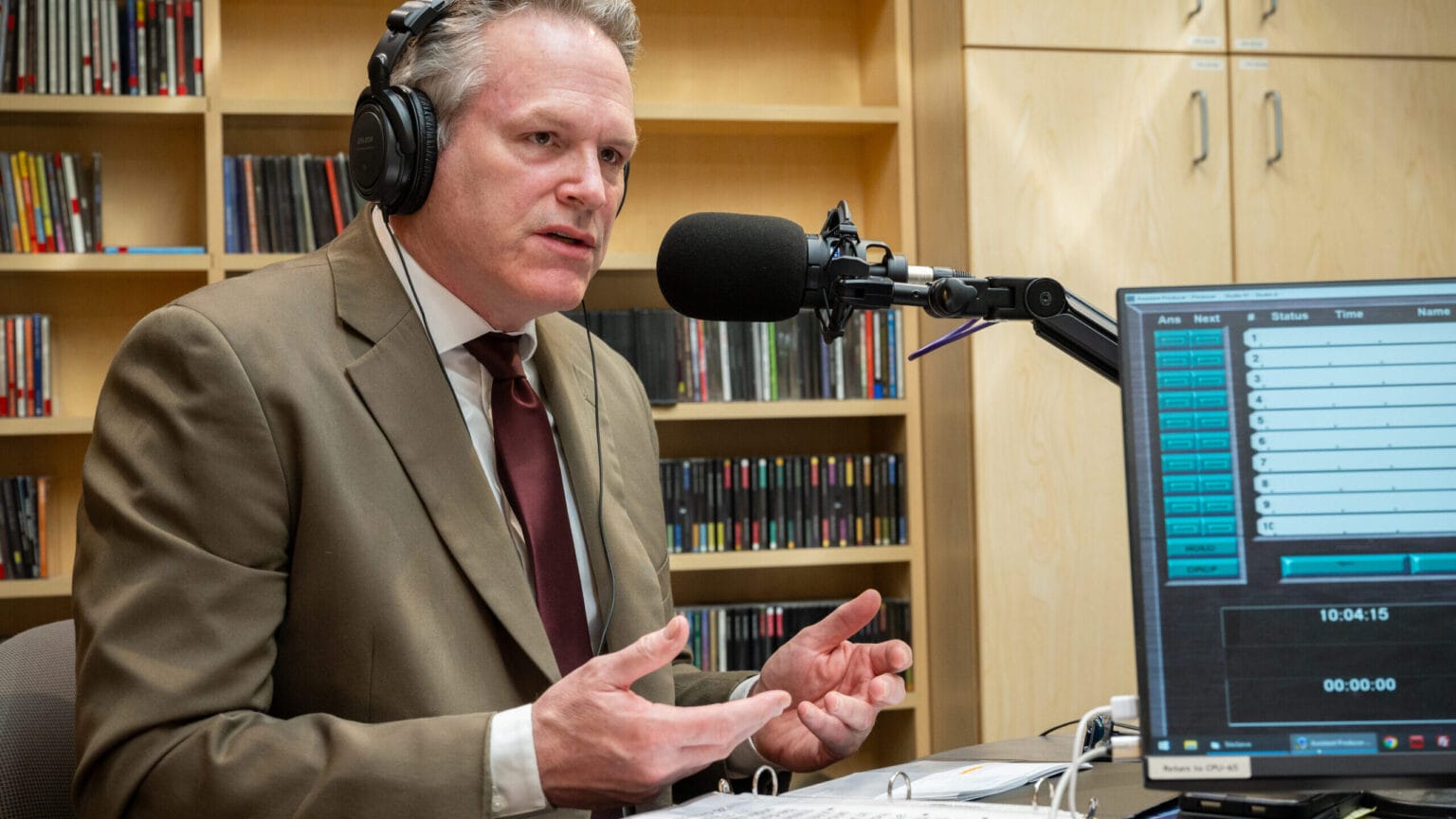Gov. Mike Dunleavy is defending the state’s correspondence school program after a Superior Court judge declared cash payments to Alaska homeschool parents for educational expenses unconstitutional.
The judge found that the state’s allotment program, which reimburses parents up to $4,500 per year for books, supplies, activities and even private school classes, violates a section of the Alaska Constitution that prohibits the use of public money “for the direct benefit of any religious or other private educational institution.” The state plans to appeal the case to the Alaska Supreme Court.
The plaintiffs say they brought the suit after noting an uptick in private schools advertising that parents could use their correspondence school allotments to pay for classes or tuition. Public correspondence schools monitor the students’ progress and must approve expenses to be reimbursed.
On Talk of Alaska Tuesday, Dunleavy focused the argument on the “direct benefit” portion of the constitutional language.
“Our argument is that it’s an indirect benefit to the institution. It’s not a direct benefit to the institution,” Dunleavy told host Lori Townsend. “And so, what we’re talking about here is public school students trying to get a public outcome, a public educational outcome, by using a whole host of different vendors, both private and religious.”
But Sen. Bill Wielechowski, D-Anchorage, had a different take.
“That’s not how I interpret that. I think it’s pretty clearly a direct benefit,” Wielechowski told reporters on Tuesday afternoon. “There was a lot of discussion about what direct and indirect benefits were during the Constitutional Convention, and I don’t think that was what their intent was.”
Senate President Gary Stevens, R-Kodiak, agreed, adding that he would not support amending the Constitution to remove the prohibition on spending public funds on private and religious schools.
In the House, majority caucus lawmakers said they wanted to wait for the court case to proceed before considering a legislative fix. But House Education Committee co-chair Rep. Justin Ruffridge, R-Soldotna, said the Constitution is clear.
“Should public monies be used for religious and private instruction? I think our Constitution currently indicates that the answer to that is no,” Ruffridge said.
Fellow Education Committee co-chair Rep. Jamie Allard, R-Eagle River, agreed but suggested changing the Constitution.
“Based on what is in our Constitution, currently, it appears the allotments can’t be used for that,” Allard said. “Would I be open to saying OK, that the dollars can follow the child and be used in a faith-based school but maybe not pay for that Bible study class? I think that’s a good compromise,” Allard said.
Ruffridge agreed that a constitutional amendment would be a “worthwhile discussion” but said the proposal faces long odds in a closely divided House.
Lawmakers in both the House and Senate offered support for the homeschool system as a whole.
Source
#Dunleavy #argues #homeschool #allotments #indirect #benefit #private #schools #Lawmakers #disagree
